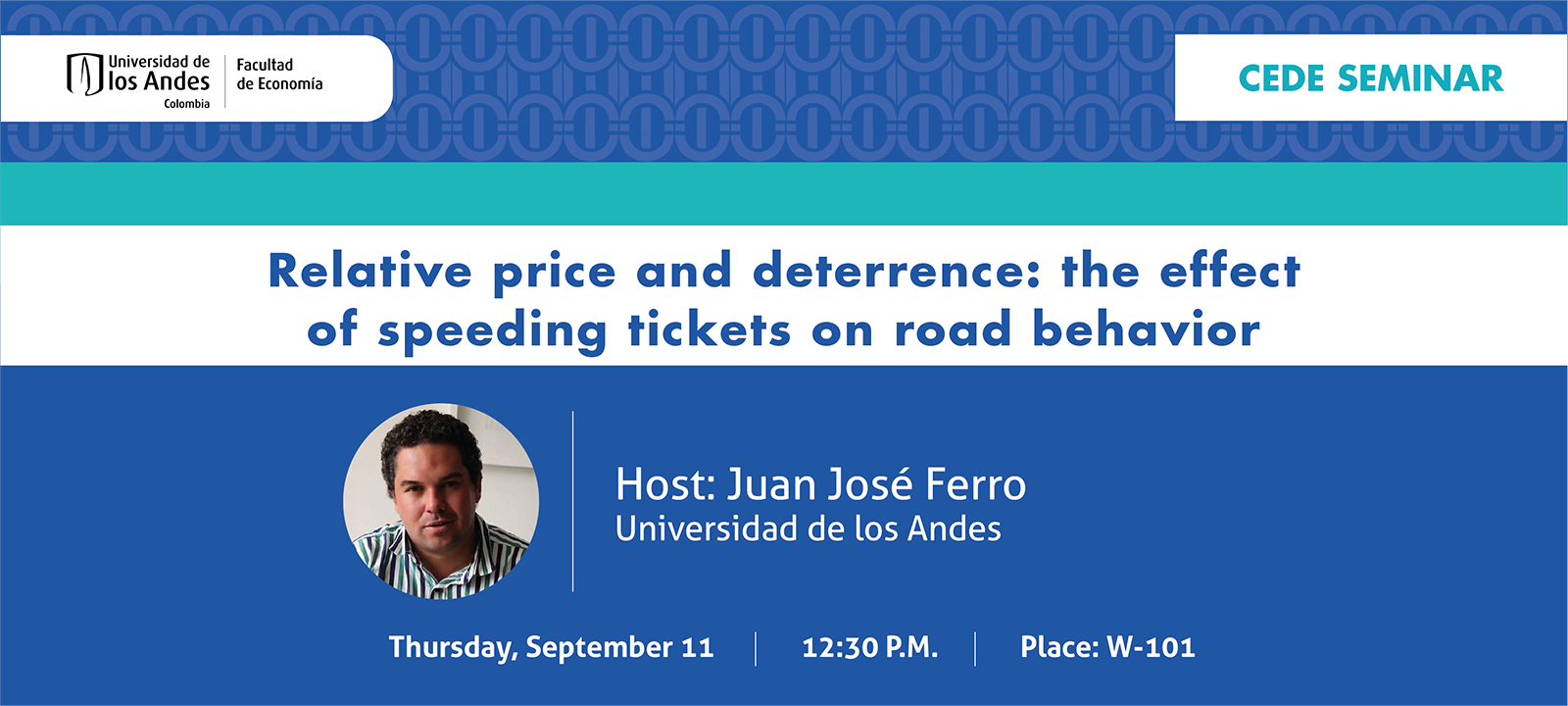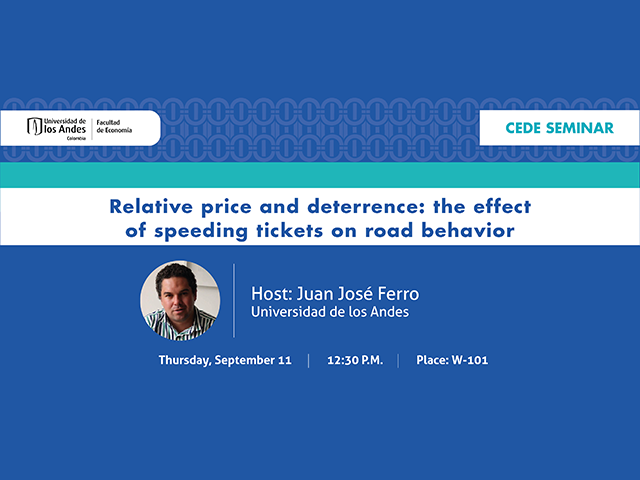CEDE Seminar - Juan José Ferro

Governments use fines in order to deter socially unwanted behavior on a wide array of issues. It is commonly assumed that, fixing the probability of sanction, the higher the price, the more deterrent a sanction is. I use data from automated speed cameras in Bogotá, Colombia to measure the deterrent effect of a speeding ticket. By using the real speed limit as a source of exogeneous variation and a regression discontinuity design, I find that speeding tickets have a general deterrent effect on speeding behavior but a null effect on reducing traffic accidents. Using the commercial price of the vehicle as a proxy for wealth and the fact that the monetary sanction is fixed, I find that the deterrent effect is concentrated on the higher quintiles of the distribution. I validate these findings with a judge-IV using the fact that a police agent manually verifies all tickets. Other dimensions of driving behavior show that speeding tickets do change behavior, not only adjust beliefs about enforcement. In short, speeding tickets might be less useful for preventing road fatalities than it is commonly assumed and inefficiently expensive for changing behavior for a considerable number of drivers. They also seem to be of little effectiveness for the current public health challenge of traffic fatalities in low and middle income countries. This evidence points to income based fines as a necessary public policy tool.

